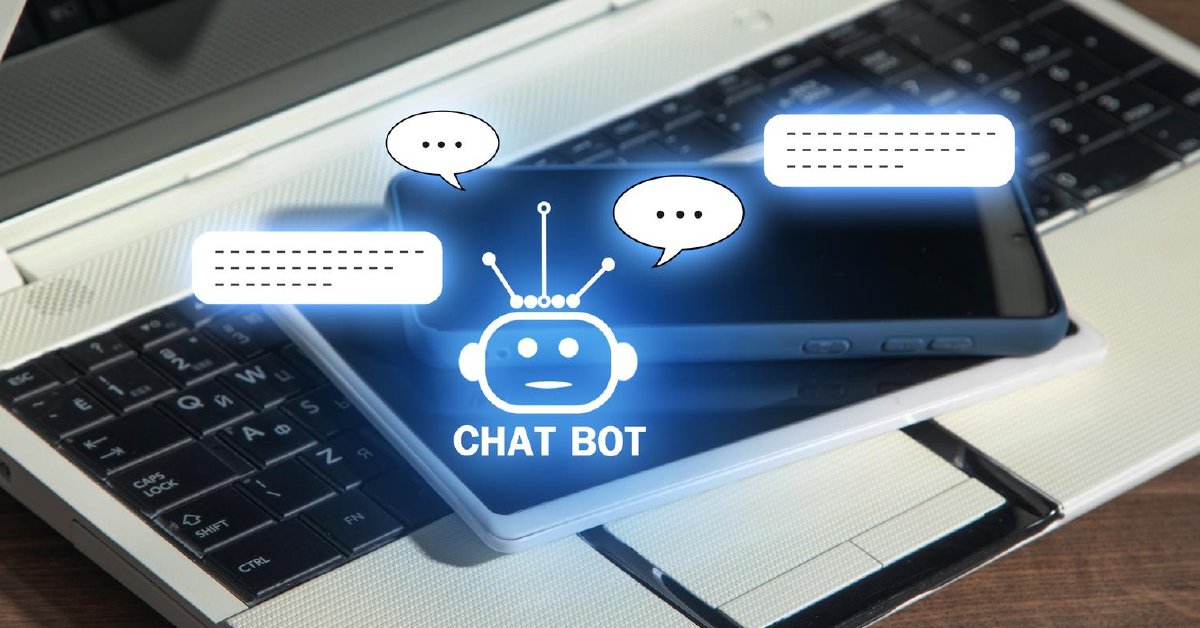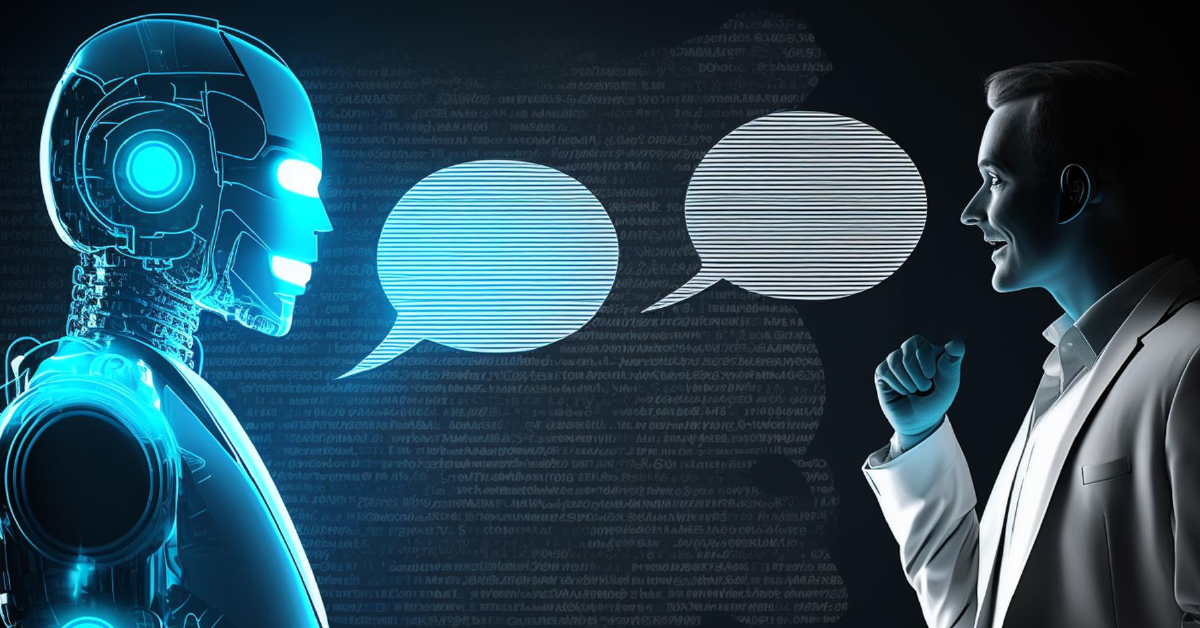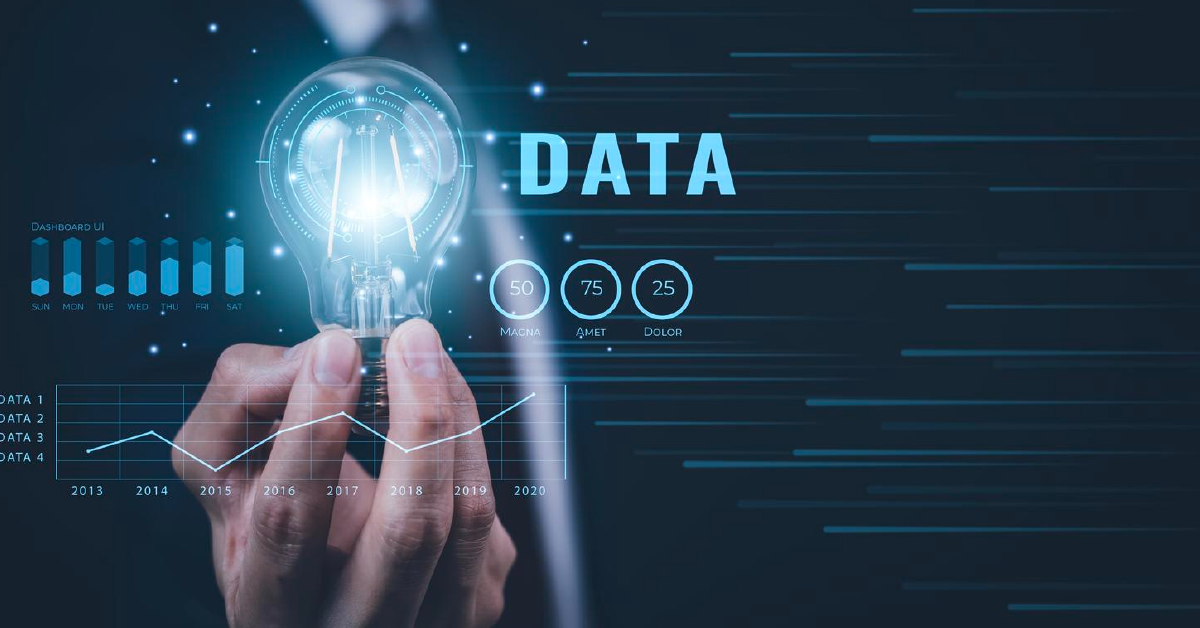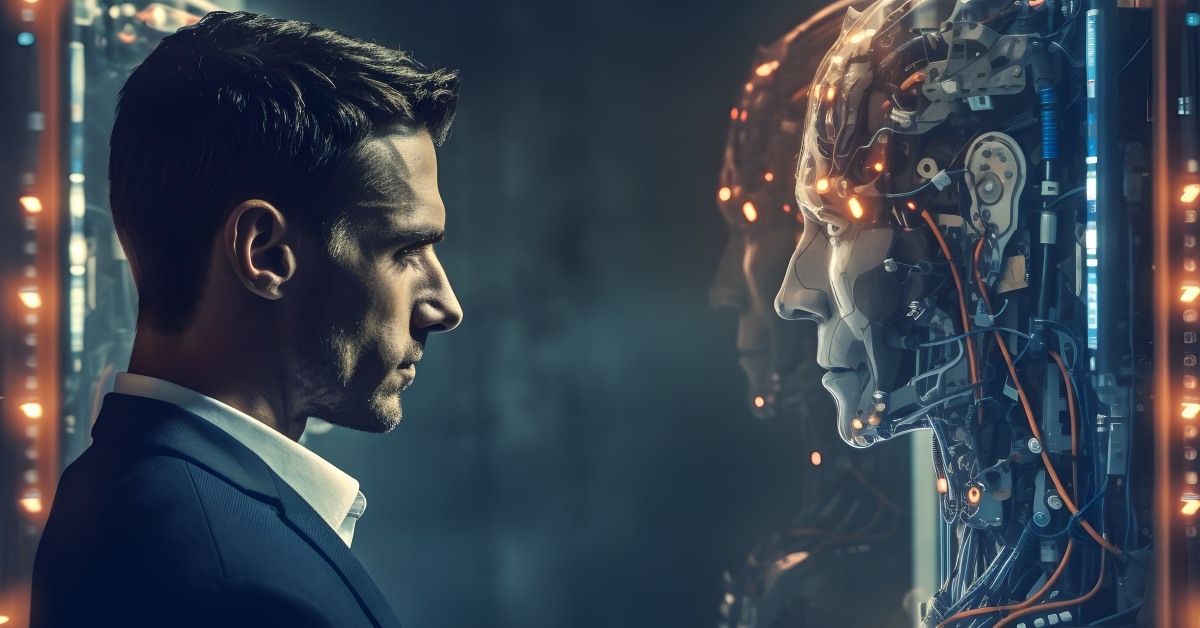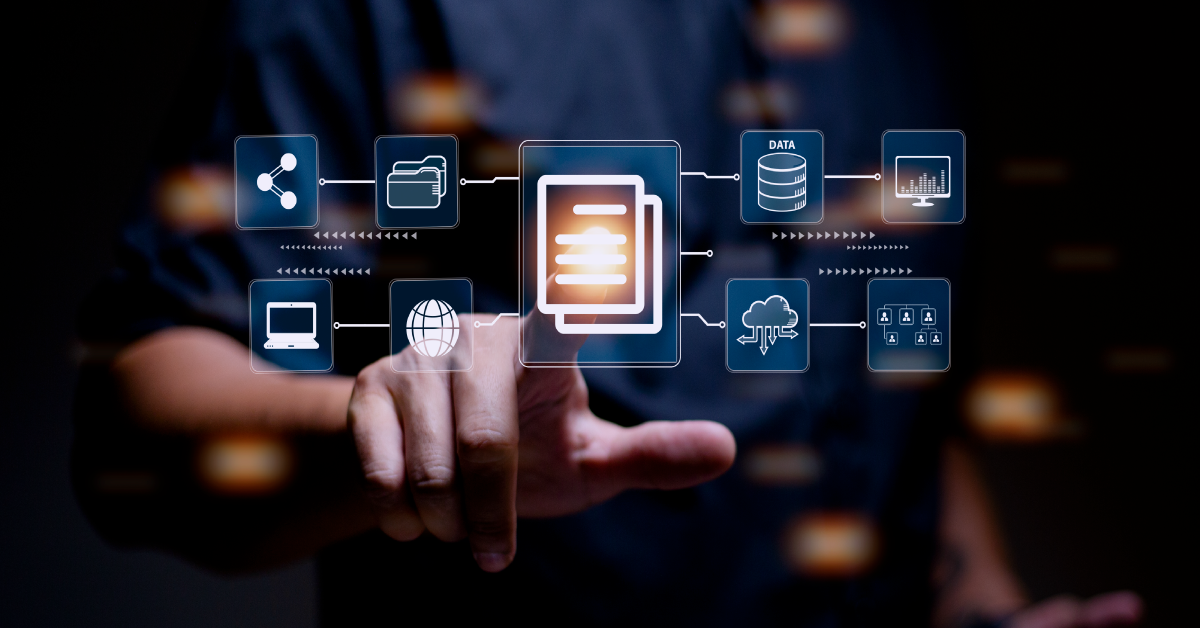The Future of AI: Why Embracing Artificial Intelligence Is Essential
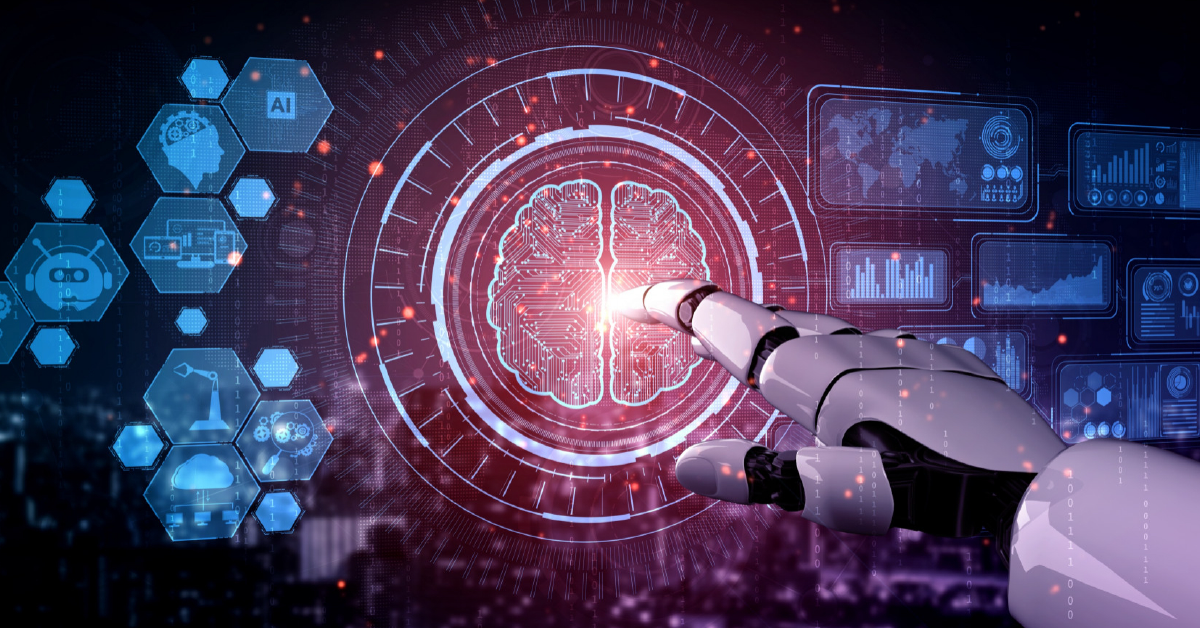
5 min read
In the future of AI, we will witness interactive with AI services. While pertains to artificial intelligence systems that can engage in dynamic and responsive user interactions. Unlike traditional AI, which operates on predefined scripts or fixed responses, interactive. AI utilizes advanced natural language processing and machine learning techniques to understand user inputs and adapt responses.
Over the next ten years, experts predict that the advent of AI will improve most people’s lives. Many people are concerned about how these developments will change what it means to be human, productive, and free will.
Interactive AI Enables AI Systems
This enables AI systems to simulate human-like conversations, making interactions more engaging and efficient. Interactive AI finds applications in various domains, including customer service, virtual assistants, educational tools, and entertainment platforms, enhancing user experiences and delivering value through seamless and interactive exchanges between humans and machines. As technology continues to evolve, interactive AI is ready to play a significant role in revolutionizing. The way we interact with computers and transforming our daily lives.
AI Deserves Our Embrace Due to its Immense Potential
AI technologies offer unprecedented capabilities. Data analysis, pattern recognition, and decision-making are at a scale and speed that humans cannot match. In healthcare, AI-powered diagnostics can detect diseases early, leading to better patient outcomes.
AI and automation in manufacturing enhance productivity and reduces errors. In customer service, AI-powered chatbots offer personalized assistance around the clock. Moreover, AI’s ability to process vast amounts of data enables businesses to make data-driven decisions, optimize processes, and improve efficiency. Embracing AI opens doors to innovation and competitiveness, ushering in a future where AI collaborates with humans, complementing our capabilities and shaping a more sustainable and advanced world.
How Can Companies Get Ready to Implement AI?
AI is already having an impact on our daily lives. The use of AI will undoubtedly increase in the upcoming years. The primary question regarding AI for organizations is, “How can we successfully generate business value from AI technology?” Rather than “Should we adopt AI?”
Businesses should first develop an AI strategy. This involves finding potential use cases and calculating their worth. By articulating the business opportunity or problem, the organization is trying to solve and then creating a plan to carry out these projects. The following are some steps that companies can take to get ready for AI adoption:
Define Clear Objectives: Companies should identify specific goals they want to achieve with AI. Whether improving customer service, optimizing supply chain management, or enhancing product recommendations, having clear objectives will guide the AI implementation process.
Assess Data Readiness: AI relies heavily on data. Companies should assess the quality, quantity, and accessibility of their data. They must ensure their data is clean, relevant, and sufficient for AI model training.
Build Internal AI Expertise: Developing an internal team with expertise in AI and data science is crucial. This team will understand AI technologies, select appropriate AI tools and algorithms, and integrate AI solutions into existing systems.
Start small and Scale: It’s advisable to start with small pilot AI projects before committing to large-scale implementations. This approach allows the company to learn from initial successes and failures, refine its AI strategy, and gradually scale to more significant projects.
Address Security and Privacy Concerns: AI involves handling sensitive data, so companies must prioritize security and privacy. They should implement robust data protection measures, comply with relevant regulations, and ensure transparency and explain-ability of AI algorithms.
Embracing AI: For A Sustainable Future
Embracing AI for a sustainable future is a critical step in addressing the challenges posed by environmental issues, resource depletion, and climate change. AI technologies can play a transformative role in creating a more sustainable world. By optimizing processes, reducing waste, and enabling more intelligent decision-making. The following are some examples of how AI might promote sustainability
The Collaborative Future: AI and Human Co-operation
The collaborative future of humans and AI working together holds tremendous promise for enhancing productivity, problem-solving, and overall well-being. AI technologies have the potential to complement human capabilities, amplify our strengths, and address complex challenges that would be difficult to tackle using traditional methods alone. Here are some critical aspects of this collaborative future:
- Rather than replacing humans, AI is ready to augment human intelligence. AI can process vast amounts of data, recognize patterns, and generate insights at speeds far beyond human capacity.
- AI and automotive are repetitive and mundane tasks, freeing human workers to focus on more creative and strategic endeavors.
- AI-powered virtual assistants like chatbots can provide real-time support to customers and employees, streamlining interactions and resolving queries efficiently.
- AI can help medical practitioners identify diseases, analyze X-rays, and create individualized treatment programs.
Despite the potential benefits, addressing challenges like data privacy, security, and transparency in AI systems is essential. Additionally, the human workforce will need continuous upskilling and reskilling to adapt to the changing nature of work in this collaborative future.
What Future Effects Will AI Have?
Future predictions indicate that AI will significantly impact almost every aspect of our life. Its potential effects could be felt in a variety of sectors, including the economy, healthcare, education, and entertainment. The following are some significant future effects of AI.
AI Could Improve Our Health
Everyone is concerned about the COVID-19 pandemic right now, and healthcare is one area where AI can significantly impact. Already, clinically accurate AI diagnostics can quickly and affordably identify various diseases. It’s not science fiction to imagine a world. In which everyone has access to a virtual doctor who can predict when you’re getting sick before you realize it.
Because of the sensors in our phones, watches, and other devices. What we carry and wear is becoming less expensive, more widespread, and more capable as AI advances.
AI Can Help Elderly Remain Independent for Longer
By directly delivering groceries, medicine, and other necessities to older people’s front doors, autonomous delivery bots can help them live more self-sufficient and independent lives. Additionally, autonomous delivery bots could provide essential items to elders in times of need, like the present COVID-19 situation, saving them from putting their health at risk by going to pharmacies or grocery stores.
The Use of AI Can Help Persons With Limitations
By enabling computers to hear, see, and reason with remarkable accuracy, AI can benefit the more than 1 billion people with disabilities worldwide. For instance, the Seeing AI software helps those who are blind by describing people, things, and terrain.
AI Is Become a Powerful Ally For Farmers
Farmers now have a formidable ally in AI, allowing them to save time and precious resources. Farmers may get real-time information about the health of their crops, the state of the soil, and how much water they are using by utilizing the capabilities of AI-powered sensors, drones, and data analytics. With this knowledge, they can apply fertilizers and insecticides accurately, plan the best irrigation schedules, and spot disease or pest infestations in their earliest stages.
AI Can Handle Your Busywork For You
AI can perform time-consuming, boring, and mundane activities, freeing us to use abilities like creativity, resourcefulness, and problem-solving that robots lack. Although new technologies have changed and will continue to replace some industries, AI will also create new jobs. Additionally, it will improve much of our labor by making some tasks safer, simpler, or more effective.
Conclusion
The future of humans and AI working together is not about replacing humans but finding synergy and balance between human creativity, intuition, and emotional intelligence and AI’s speed, efficiency, and data-processing capabilities. By embracing this collaborative approach, we can unlock new opportunities and collectively address the challenges of our time.
Don’t hesitate to contact Pranathi Software Services Pvt Ltd, To enquire about more software development services.
Published: August 4th, 2023

